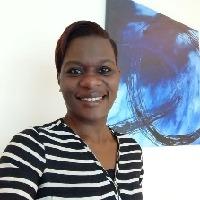Blog
Unless otherwise stated, content is shared under CC-BY-NC Licence
World Digital Preservation Day 2025 Vlog: Why Preserve? – University of the Arts London
Elisabeth Thurlow is the Digital Preservation and Access Manager at University of the Arts London
For World Digital Preservation Day 2025, we invited DPC Members and Supporters to share their reflections on this year’s theme, “Why Preserve?”. As part of this series, Elisabeth Thurlow at University of the Arts London shares her reflections on why digital preservation matters. Watch the vlog to hear her thoughts!
Why preserve? The UKERC Energy Data Centre team contemplates…
This blog post is co-authored by Catherine Jones, Peter Holt, Oliver Brough and Vivek Mistry at the UKERC Energy Data Centre at UKRI STFC
The Energy Data Centre’s vision is “Access to energy information for now and the future”, so its purpose is to preserve the research data and grey literature that is deposited within the service. The team are usually busy doing preservation activities rather than thinking deep thoughts. However, this World Preservation Day’s theme gave us an opportunity to take a wider view of our roles.
Our EDC team has four members who cover a range of career stages, team roles with different perspectives, and personal experiences of the digital world. Each of our team members has answered the “Why Preserve” question in their own words.
Discover Why Preserve? in This WDPD 2025 Vlog from the University of Warwick
Rachel MacGregor, Digital Preservation Officer, and Eren Delaney, Digital Preservation Specialist, at the Modern Records Centre at the University of Warwick
For World Digital Preservation Day 2025, we invited DPC Members and Supporters to share their reflections on this year’s theme, “Why Preserve?”. As part of this series, Rachel MacGregor and Eren Delaney offer the Modern Records Centre's perspective on the importance of safeguarding our digital heritage. Watch the vlog below to hear their thoughts!
Starting with Why...
Simon Wilson is Archives Consultant at Simon P. Wilson Consultancy
As an archives consultant I have the privilege of working with a wide range of organisations facing different challenges and opportunities. Much of this work tends to remain behind the scenes but I wanted to share a few reflections from current and recent client projects relating to the question of Why preserve?
Digital Preservation Steps at the Science Museum Group & Why (We Want To) Preserve
Somaya Langley is Digital Preservation Manager at the Science Museum Group
The Science Museum Group (SMG) cares for over seven million collection objects and items, many of outstanding national and international significance. Our collection tells the story of our world, charting the development and history of science, technology, engineering, media, and medicine through many centuries. Situated across England, we provide access to the public through our five museums (Bradford, London, Manchester, Shildon, York), and through guided tours of our collection store at the Science and Innovation Park (Wroughton). SMG’s archive and library collection is accessible via five of our six sites, and our object photography is available via Collections Online.
Digital Preservation has now been running as a project at SMG for four years, and as a team (of two) for two years. This team collectively possesses over 50 years of combined experience in working at the intersection of creativity, culture, heritage, and technology.
Hit Play on this WDPD2025 vlog: This is Why CERN Preserves!
Jean-Yves Le Meur is the Digital Memory Project Leader at CERN and Danae Broustail is an Openlab Summer Student at the European Organisation for Nuclear Research (CERN)
For World Digital Preservation Day 2025, we invited DPC Members and Supporters to share their reflections on this year’s theme, “Why Preserve?”. As part of this series, Jean-Yves Le Meur and Danae Broustail created a vlog with CERN's perspective on the great importance of digital preservation. Watch their vlog below!
Why Preserve? Safeguarding Middle Eastern Heritage in the Digital Age
Irina Schmid, Instructor and Digital Collections Archivist, works at the American University in Cairo.
A reflection from the Digitization Center at American University in Cairo on World Digital Preservation Day
Imagine a graduate student in São Paulo discovering a 19th-century Arabic poem that perfectly captures her research question. A historian in Tokyo finding administrative records that illuminate Ottoman trade networks. A teenager in Detroit exploring her family's cultural heritage through digitized manuscripts from her grandparents' homeland.
These moments of connection across time and space answer the fundamental question: Why preserve?
Preserving Legislative Records: Why they matter and what the Nairobi City County Assembly can teach us
Villy A. Magero is Principal Records Management Officer at Nairobi City County Assembly, Kenya and is a Member of Kenya Association of Records Managers (KARMA)
Legislative records, Hansards, Committee reports, bills, petitions, administrative records and minutes are more than paper work. They are the DNA of the democratic decision making. Without them the Nairobi City County Assembly cannot demonstrate accountability, preserve memory or enable residents to hold leaders accountable.
Across the world, parliaments and assemblies face the challenge of safeguarding these records amid technological change, resource limitations and political transitions. In Kenya the Nairobi City County Assembly provides a practical case study of both the promise and the challenge of legislative records preservation.
Tune in on this vlog to hear why Jisc's Paul Stokes Preserves
Paul Stokes is Subject Matter Expert (Digital Preservation) at Jisc; Director of the Digital Preservation Coalition; Chair of the DPC Advocacy and Community Engagement sub-committee; Director of the Open Preservation Foundation; Director of OPF NL.
For World Digital Preservation Day 2025, we invited DPC Members and Supporters to share their reflections on this year’s theme, “Why Preserve?”. As part of this series, Paul Stokes offers his perspective on the importance of safeguarding our digital heritage. Watch the vlog below to hear his thoughts!
Why Preserve? A stroll with Garth Stewart for WDPD2025 ...Watch this vlog!
Garth Stewart is Head of Good Practice with the Digital Preservation Coalition
For World Digital Preservation Day 2025, Garth Stewart walked over to the Argyll Street Ash Tree in Glasgow and recorded a vlog for us all. Watch it now to hear Garth's thoughts on the need to preserve!

























































































































































